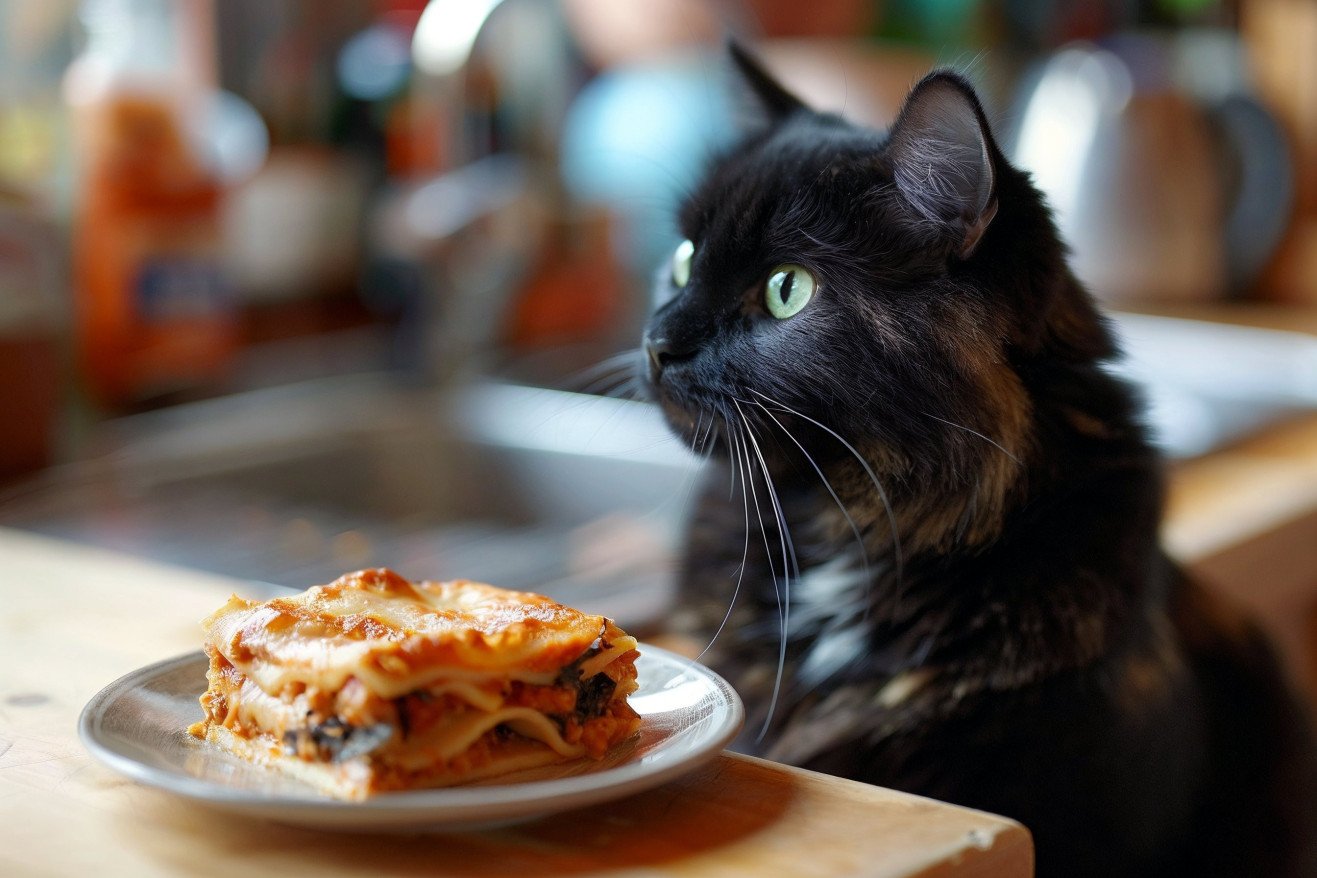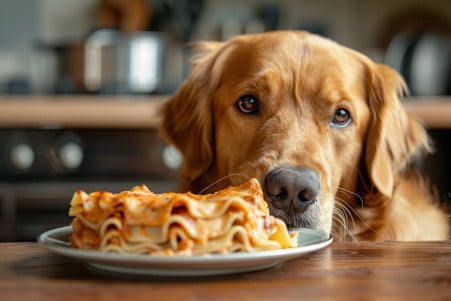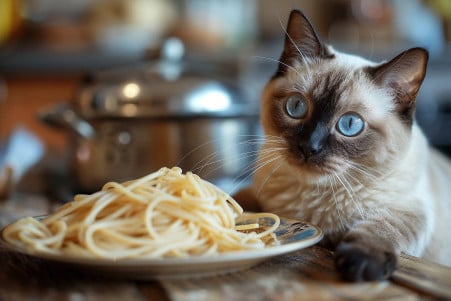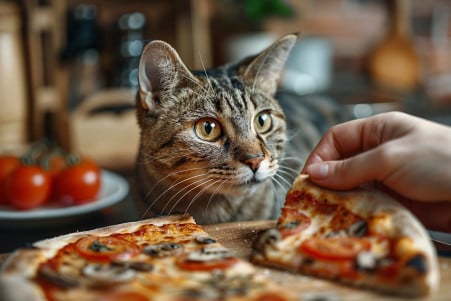Can Cats Eat Lasagna? A Feline Dietary Deep Dive
20 March 2024 • Updated 20 March 2024

Even though you might be tempted to share your lasagna with your cat, there are many reasons why you should think twice before letting your pet indulge in this popular pasta dish. Not only is lasagna made with ingredients that are toxic or hard for cats to digest, such as onions, garlic, and dairy products, but it's also a highly processed food that doesn't provide the nutrients that cats need from a diet that's high in animal protein.
In this article, we'll look at what veterinary science has to say about the nutritional needs of cats and how they differ from the nutritional needs of humans, as well as how the ingredients in lasagna can affect your cat's health.
By exploring the research on feline nutrition and digestion, you'll learn what your cat needs to eat to stay healthy and happy. While it might be tempting to feed your cat from your plate, feeding your cat food that's appropriate for its dietary needs will ensure that it gets the nutrition it needs to be at its best.
Can cats eat lasagna?
Toxic Ingredients in Lasagna for Cats
Lasagna is made with a number of ingredients that are toxic or hard for cats to digest. The Allium family, which includes onions, garlic, and chives, can cause oxidative damage to a cat's red blood cells, which can result in anemia, notes Hill's Pet. Dairy products like the cheese and milk in lasagna are a problem because of lactose intolerance in cats, which can lead to digestive upset.
The tomatoes and tomato sauce in lasagna contain tomatine, which is poisonous to cats and can cause gastrointestinal upset. Even the most common spices, herbs, and seasonings used in lasagna can cause digestive upset in cats. Even if they only consume a small amount, cats can experience severe health issues from these toxic lasagna ingredients. To ensure your cat stays healthy, it's best to avoid giving them lasagna because the ingredients in it can be so dangerous.
Lasagna's Nutritional Deficiencies for Cats
Cats are obligate carnivores, which means that they need a diet that is high in animal-based proteins and fats. The Spruce Pets says that cats are not built to get the nutrients they need from the high carbohydrate content of lasagna. Lasagna is mostly made up of noodles, which are a carbohydrate and don't have the nutrients that cats need from meat.
This can lead to health problems like obesity and other issues, according to Catster. Since cats have very different nutritional needs than humans or dogs, human foods like lasagna can't be used as a substitute for a well-balanced cat diet.
According to Untamed, cats are obligate carnivores and need to get their energy from animal proteins and fats, not carbohydrates. The best way to make sure that cats get the nutrition that they need to be healthy and happy is to feed them a high-quality, commercial wet cat food that's made for obligate carnivores.
Dangers of Cats Eating Lasagna Accidentally
If a cat eats lasagna or any of its ingredients by accident, the potential health problems that can result will depend on the amount that the cat eats. Cats Protection notes that cats are often less likely to survive poisoning than dogs because of their smaller size, meaning even a small amount of a toxic substance can be deadly. General signs of poisoning in cats include vomiting, diarrhea, lethargy, drooling, tremors, seizures, and a lack of coordination.
The symptoms and their severity can also depend on the type of toxic substance that the cat has ingested, including stomach issues from plants or neurological symptoms from other substances, according to The Dodo. If you suspect that your cat has eaten something toxic, it's important to get them to the vet immediately, even if they aren't showing any symptoms. Pet Poison Helpline explains that quick action, including treatments like vomiting or activated charcoal, can help reduce the risks and prevent further issues.
Substitutes for Lasagna for Cat Treats
Although lasagna isn't safe for cats, there are plenty of other treats that are safe and healthy for cats. Purina says that commercial cat treats that are made with high-quality animal proteins and low carbohydrates can be a great way to give cats a treat. In addition, cooked, unseasoned meats like chicken, turkey, or fish can be given as a treat in small amounts.
For homemade cat treats, ingredients like pureed pumpkin, unsweetened yogurt, or cooked eggs can be used. However, it's important to talk to a vet before giving a cat any new food or treats to make sure they're safe and appropriate. By learning about the nutritional needs of cats, cat owners can give their pets treats that are both delicious and good for them.
Conclusion: Making Sure Your Cat Gets the Right Nutrition
Lasagna and other human foods are not appropriate for cats because of their nutritional needs as obligate carnivores. Many of the ingredients in lasagna, including onions, garlic, and dairy products, are toxic or hard for cats to digest. It's important to make sure that cats are fed a balanced diet that includes meat and is designed to meet their specific nutritional needs.
While the occasional treat is fine, it's important to make sure that you're giving your cat safe, cat-appropriate treats and to talk to your vet about the best options. By learning more about the nutritional needs of cats, cat owners can make sure that they're making the best choices for their pets' diets.


